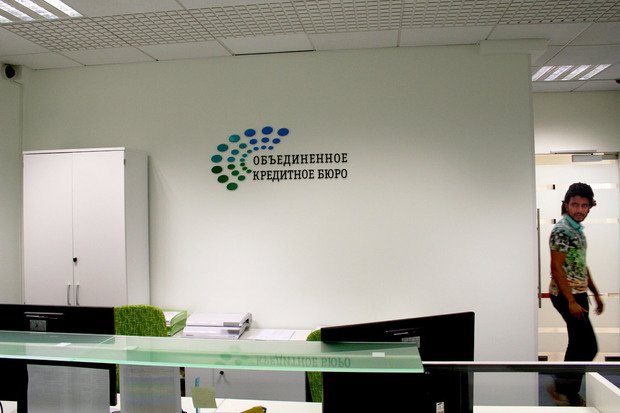Greater credit accountability: borrowers to see themselves through banks' eyes
Amendments to a law that allow a borrower to get not only a report but also a personal credit score in the Credit History Bureau are now in force
Now borrowers can know how attractive they are for a bank: amendments to law according to which a borrower will get a personal credit score together with a credit history report in the Credit History Bureau (CHB) have come into force. The novelty is considered to enable to evaluate chances before taking out a loan. However, in Realnoe Vremya's interlocutors' opinion, banks, first of all, look at their own ratings, that's to say, internal evaluation methods of borrowers. The CHB itself emphasises that a high score doesn't mean a loan will be granted.
''Only a bank decides if to grant a loan''
The personal credit score has been created as an equivalent of banking systems evaluating borrowers that have been applied for long. But the novelty is designed only for clients, not banks themselves, explained Marketing and Communications Director of the United Credit Bureau (UCB) Yekaterina Kotova: ''Banks are already using this data in their systems, now borrowers will also see how a lender evaluated their credit history.'' This innovation won't affect lending directly but it will help to increase borrowers' accountability in the future, the interlocutor adds.
To know your own credit history, first of all, you should find out in which bureau it's held. For this purpose, you should send a request to the Central Credit History Catalogue. This can be done via any bank, any credit history bureau (which total over ten), telegraph, any notary, microfinance institution or via State Services website, the Central Bank explains.
It won't be possible to obtain information when turning to CHB, which might not have a citizen's credit history – one bureau doesn't provide with information about data that are available in another CHB. This is why, first, you should send a request and find out where this information is stored. You can obtain information in the CHB online (if this is possible), go to the bureau or its partner's office in person, by mail or telegram.
 After law comes into force, it will be possible to get two free reports a year instead of one like it was before. As Kotova notes, after two requests, the request will cost 390 rubles in the UCB and 600 rubles in the office. The same price is presupposed for a request by mail or telegram. ''The rating is updated automatically after making amendments to credit history. It consists of exceptionally credit history data that are stored in a CHB. According to law, sources must provide with data about changes in a borrower's credit history within five years,'' the interlocutor specifies.
After law comes into force, it will be possible to get two free reports a year instead of one like it was before. As Kotova notes, after two requests, the request will cost 390 rubles in the UCB and 600 rubles in the office. The same price is presupposed for a request by mail or telegram. ''The rating is updated automatically after making amendments to credit history. It consists of exceptionally credit history data that are stored in a CHB. According to law, sources must provide with data about changes in a borrower's credit history within five years,'' the interlocutor specifies.
Every bureau has its own evaluation system, so it will have its own variables. For instance, overdue payments – both current and previous – will affect the total score, the debt load level, the number of requests of his credit story. So a borrower scores points, the more points he has, the lower the credit risk exposure is.
The UCB's press service explains that not the indicator itself but the risk exposure range it corresponds to matters – high, medium or low. But every a very high personal rating from the bureau doesn't guarantee a loan will be approved, Myasnikov stressed – only a bank decides (with its own scoring) loan terms and if to grant it in general: ''Banks and MFIs have additional sources to evaluate a borrower that aren't included to credit history – information about employment and income, contact data, history of relationships with a specific organisation. This is why a decision is made not only on the basis of credit histories but more thoroughly.''
Bank's own rating takes precedence over that of bureau
''All banks use data of the UBC. But it's important to consider that each of them has its own evaluation system, and it takes precedence for it. This is why one bank grants you a loan and another doesn't – only on the basis of their own evaluations,'' says one of the banking market players.
As Sberbank notes, as for use of the USB's data when deciding to grant a loan or not, banks usually use their own models to evaluate clients' borrowing capacity and can both consider and ignore the UCB's scores. ''This depends on every bank's credit policy and the quality of models used by the bureau when calculating the rating,'' the interlocutor specifies.
 Banks operating in Tatarstan confirmed they evaluated clients by all available means, but their own methods were a priority. ''As any big market player, Rosbank has its own scoring system. It's an integrated evaluation of a potential client's trustworthiness on the basis of all information about him a bank has. Undoubtedly, we have clients whom we refuse to grant a loan because of their potential unreliability,'' tells Director of Rosbank's representative office in the Republic of Tatarstan Ruslan Yulbarisov.
Banks operating in Tatarstan confirmed they evaluated clients by all available means, but their own methods were a priority. ''As any big market player, Rosbank has its own scoring system. It's an integrated evaluation of a potential client's trustworthiness on the basis of all information about him a bank has. Undoubtedly, we have clients whom we refuse to grant a loan because of their potential unreliability,'' tells Director of Rosbank's representative office in the Republic of Tatarstan Ruslan Yulbarisov.
The interlocutor notes the novelty is unlikely to cause significant changes for either banks or borrowers when granting a loan. ''At the same time, such an aggregate score will help a borrower to understand how he looks in the eye of the lender,'' he adds.
Otkritie bank analyses data of the United Credit Bureau, including to create internal scoring models to evaluate credit risk. The introduction of the score won't significantly influence the bank's business, as the data a score is allegedly made of are already in the system of making a decision on a loan, the press service notes.
Bank of Kazan uses a risk-oriented model to consider natural persons' credit applications, says the press service's representative: ''It includes both use of the scoring model and experts' evaluation of a client's borrowing capacity. Both models complement each other when it's made a decision if to grant a loan or not.''
The scoring model of Bank of Kazan contains information about a client's sex and age, his job, marital status and number of dependents. A client's payment discipline and other characteristics also matter. ''Information that is shown in the credit report [of the bureau] is calculated from specifics of a client's credit behaviour, payment discipline and the presence or absence of current overdue payments.'' The interlocutor says this information is basic when considering an application. This is why credit scores will be applied in integrated application processing and in combination with a bank's internal rating evaluation as well as evaluation of a client's financial stability on the basis of data about client's income, the press service's representative adds.

Orenburg Oblast has the biggest number of unreliable borrowers in Volga Federal Okrug
Before the law came into force, the UCB's specialists had analysed data of 77,7m citizens who have ever taken out a loan the information about whom the bureau has. 78% of them turned out to have a high credit score. It corresponds to 60,6m Russians. 13% of 9,8m people scored a low rating. 9% (7,4m) citizens have a medium rating.
According to analysts of the UCB, those with a high credit score have the best indicator, 84% in Moscow. Chukotka AO and Ryazan Oblast are 1% behind. Penza, Oryol, Bryansk Oblasts, Mordovia, Chuvashia and Saint Petersburg have 82%.
As for other Volga Federal Okrug regions, their indicators look the following way: Bashkortostan has 76% citizens with a high score and 12% with low, Kirov, Nizhny Novgorod Oblast and Mari El have 81% of trustworthy borrowers and 10% of citizens with a bad credit history. The best state of affairs in the Volga Federal Okrug is in Mordovia and Chuvashia: apart from quite a big share of trustworthy borrowers (82%), the number of citizens with a low rating (9%) is here. Orenburg Oblast is less successful – 15% have a low rating and 75% — high. The ratio of high and low ratings in Perm Krai is 76% against 13%, in Samara Oblast – 79% against 12%. Things are a bit worse in Saratov Oblast (78% against 12%).
Tatarstan has 78% of trustworthy borrowers (and 11% with a bad rating), Udmurtia and Ulyanovsk Oblast – 81% each. 10% of citizens in Udmurtia have a low rating, Ulyanovsk Oblast has 11%.
''Rating will help only dishonest borrowers''
 Professor of the Department of Finance, Money Circulation and Credit at RANEPA Yury Yudenkov thinks it's an untimely novelty. First of all, ratings of juridical persons should have been put into order. In addition, a good credit history not always guarantees that a loan will be granted or there will be more favourable terms: ''Banks work for income, as wonderful as your credit history looks, they won't reduce you the rate – the rate constantly grows because it depends on the market and has nothing to do with your credit score. Another thing is that this can work if a borrower is dishonest. Then there is sense in having such a credit history, and it's important that he know about it.''
Professor of the Department of Finance, Money Circulation and Credit at RANEPA Yury Yudenkov thinks it's an untimely novelty. First of all, ratings of juridical persons should have been put into order. In addition, a good credit history not always guarantees that a loan will be granted or there will be more favourable terms: ''Banks work for income, as wonderful as your credit history looks, they won't reduce you the rate – the rate constantly grows because it depends on the market and has nothing to do with your credit score. Another thing is that this can work if a borrower is dishonest. Then there is sense in having such a credit history, and it's important that he know about it.''
 Finance professor of New Economic School Oleg Shibanov told RNS news agency that the novelty will help a person to control credit institutions' information about himself, which means he will put effort to change bad indicators.
Finance professor of New Economic School Oleg Shibanov told RNS news agency that the novelty will help a person to control credit institutions' information about himself, which means he will put effort to change bad indicators.